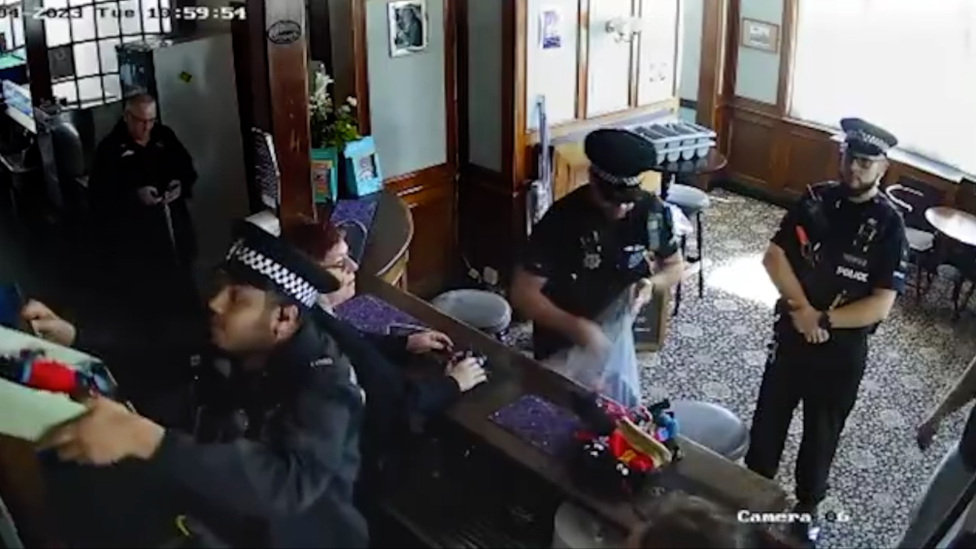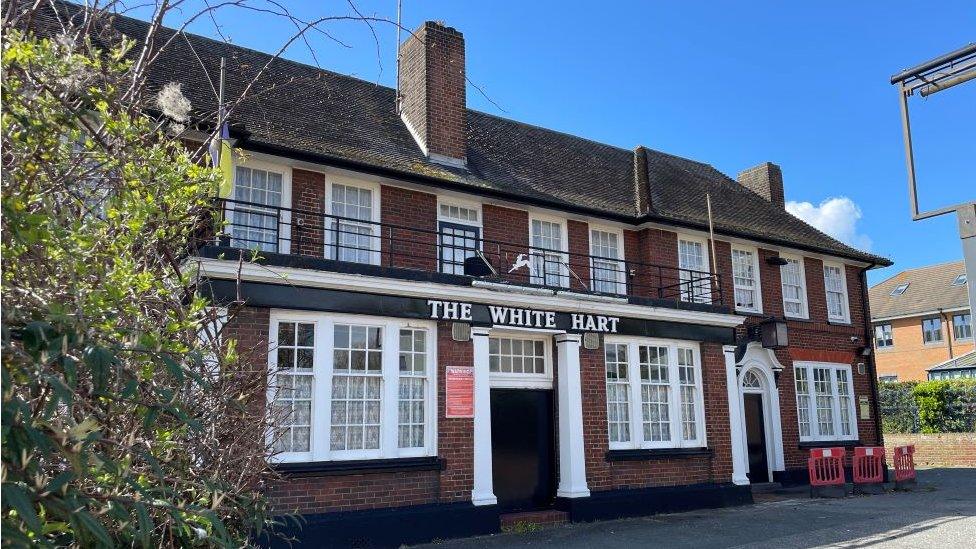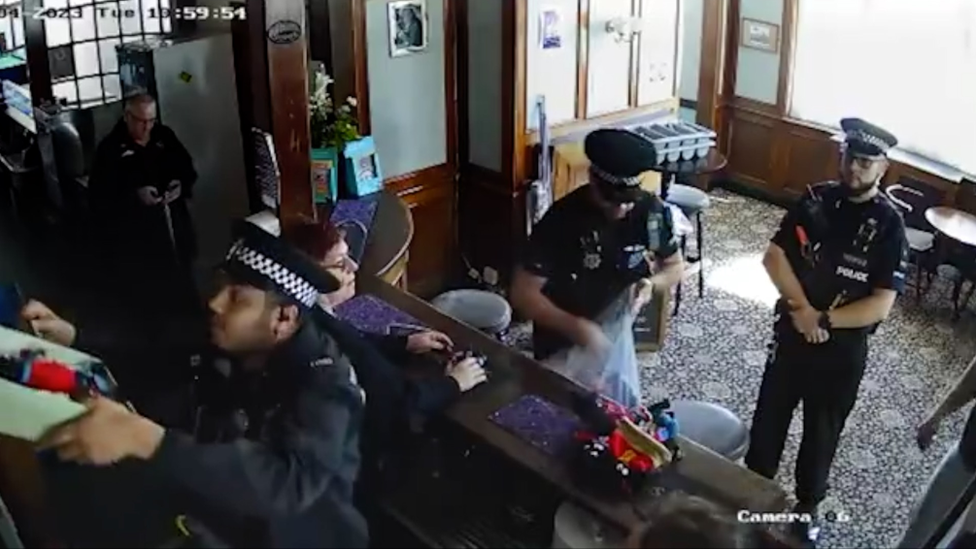Camra award ban for Essex pub displaying golly dolls
- Published

CCTV images from inside the pub showed officers seizing several dolls
A pub where golly dolls were seized by police should not be considered for "future awards or inclusion in our Good Beer Guide", the Campaign for Real Ale (Camra) said.
Camra said it found it "baffling" that the White Hart Inn, in Grays, Essex, chose to display the "offensive" dolls.
Police are investigating after a member of the public reported being racially distressed on 24 February.
Chris Ryley, who co-runs the pub, said the dolls were "part of our history".
In a series of tweets, external, Camra said it was instructing its South West Essex local branch "not to consider the White Hart, Grays, Essex, for future awards, or inclusion in our Good Beer Guide, while these discriminatory dolls continue to be on display".
A spokesman for South West Essex Camra said the matter was being dealt with by Camra centrally.
Camra said it had altered an entry on its Good Beer Guide App as it said the previous entry was "problematic".
It added a line to the entry describing the pub, which said: "Note this pub has chosen to display items that are considered by many to be offensive."

The landlord of a pub in Essex is due to be questioned by police when he returns from abroad over allegations of a hate crime
On its website, the pub said it had won the South West Essex Camra Pub Of The Year awards in the past due to its "great service".
Mr Ryley said the pub was used by South West Essex Camra and Thurrock Beer Festival for meetings.
"A mountain has been made out of a molehill," he said.
He said the pub had received more support than abuse and it was "still open and trading".
Police said a member of the public reported being racially distressed after attending the pub.
Five officers attended, where they seized several of the racially offensive dolls on 4 April.
It was reported that Home Secretary Suella Braverman had contacted the force about the investigation.
Essex Police said that was "categorically not true" but did not rule out having been contacted by the Home Office.
In an interview with LBC, Policing Minister Chris Philp said it is "up to police to decide how they respond to incidents" when asked whether it was necessary for five officers to remove the dolls.

Essex Police said it was "categorically not true" that Suella Braverman had contacted the force
Police said no-one had been arrested or charged in connection with the investigation, and the landlord would be questioned when he returned from abroad next month.
Officers were in discussion with the Crown Prosecution Service about the case before the items were taken last week, the force added.
Benice Ryley said she had displayed the collection of about 30 dolls, donated by her late aunt and customers, in the pub for nearly 10 years.
The dolls are based on 18th Century minstrels and are regarded as caricatures.
The doll is a fictional character created by Florence Kate Upton that appeared in children's books in the late 19th Century, usually depicted as a type of rag doll. It has become controversial for its perceived racist connotations.
They first appeared on jars of Robertson's Jam in 1910, external and became one of the most recognisable brands in the UK.
It spawned a range of toys and collectibles. In the 1980s, the name became Golly amid accusations that the character perpetuated stereotypes. It was finally dropped in 2001.

Find BBC News: East of England on Facebook, external, Instagram, external and Twitter, external. If you have a story suggestion email eastofenglandnews@bbc.co.uk
- Published12 April 2023
